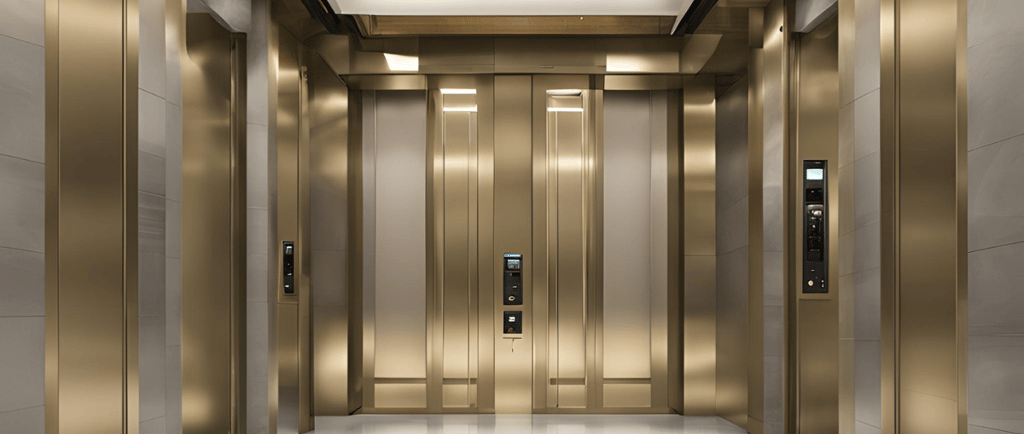The Ultimate Guide to Choosing the Best Flat Elevator Cable for Smooth and Reliable Operations
Flat Elevator Cable
9/11/20245 min read


The Ultimate Guide to Choosing the Best Flat Elevator Cable for Smooth and Reliable Operations
Are you in need of a flat elevator cable that guarantees smooth and reliable operations? Look no further. In this ultimate guide, we will walk you through the process of choosing the best flat elevator cable for your specific needs. Whether you are a building owner, an elevator maintenance professional, or a contractor, this guide will provide you with valuable insights and tips on making the right decision.
We understand that elevator cable selection can be a daunting task, considering the various options available in the market. That's why we have done the research for you and compiled everything you need to know in one place. From understanding the different types of flat elevator cables to assessing their quality and performance, we've got you covered.
Choosing the right flat elevator cable is crucial for optimizing elevator performance and ensuring passenger safety. Don't risk delays, breakdowns, or costly repairs by using subpar cables. Equip yourself with the knowledge and expertise to make an informed decision. So, let's dive in and find the perfect flat elevator cable that meets your requirements and exceeds your expectations.
Importance of choosing the right flat elevator cable
Choosing the right flat elevator cable is crucial for the smooth and reliable operation of elevators. These cables play a vital role in the efficient functioning of elevators, ensuring the safe transportation of passengers and goods. Selecting the appropriate flat elevator cable is essential to minimize the risk of breakdowns, delays, and costly repairs.
Elevators are a crucial component of modern buildings, providing vertical transportation for people and goods. The flat elevator cable is responsible for connecting the elevator car to the counterweight, allowing it to move up and down the shaft. If the cable is not of the highest quality or does not meet the specific requirements of the elevator system, it can lead to a range of problems, including jerky movements, sudden stops, and even catastrophic failures.
Subpar flat elevator cables can also have a detrimental impact on the overall lifespan of the elevator system. Frequent breakdowns and the need for constant maintenance can significantly increase the operational costs for building owners and facility managers. By investing in the right flat elevator cable, you can ensure the long-term reliability and performance of your elevator, ultimately providing a safer and more seamless experience for users.
Factors to consider when choosing a flat elevator cable
When selecting a flat elevator cable for your elevator system, there are several critical factors to consider to ensure you make the best choice. Overlooking these factors can lead to suboptimal performance, increased maintenance costs, and even safety risks.
First and foremost, it is essential to understand the specific requirements of your elevator system, including the load capacity, travel distance, and operating environment. Each elevator is unique, and the flat elevator cable must be designed to meet the unique demands of the application. Factors such as the weight of the elevator car, the number of passengers or goods it can accommodate, and the height of the building all play a crucial role in determining the appropriate cable specifications.
Another important consideration is the material composition of the flat elevator cable. Cables can be made from a variety of materials, each with its own advantages and disadvantages. Common materials used in flat elevator cables include steel, stainless steel, and synthetic fibers. Each material has its own unique properties, such as tensile strength, corrosion resistance, and flexibility, which can impact the cable's performance and lifespan.
The construction of the flat elevator cable is also a crucial factor. Cables can be made using different weaving or braiding techniques, which can affect their durability, flexibility, and resistance to wear and tear. It is essential to choose a cable that is designed to withstand the specific stresses and strains of the elevator system, ensuring reliable and consistent performance over time.
Types of flat elevator cables available in the market
The elevator cable market offers a wide range of flat elevator cable options, each designed to meet the unique needs of different elevator systems. Understanding the various types of flat elevator cables available can help you make an informed decision that best suits your requirements.
One of the most common types of flat elevator cables is the steel-core cable. These cables feature a steel core surrounded by a protective outer layer, typically made of galvanized steel or stainless steel. Steel-core flat elevator cables are known for their exceptional strength, durability, and resistance to wear and tear. They are often used in high-traffic elevator systems or in applications where heavy loads need to be transported.
Another popular option is the synthetic fiber-based flat elevator cable. These cables are made from materials such as polyurethane, polyester, or aramid fibers, which offer a range of benefits, including increased flexibility, reduced weight, and enhanced corrosion resistance. Synthetic fiber-based cables are often used in applications where weight reduction is a priority, such as in modernization projects or in buildings with limited load-bearing capacity.
In addition to these traditional options, the market has also seen the emergence of hybrid flat elevator cables, which combine the strengths of both steel and synthetic fibers. These cables offer a balance of durability, flexibility, and corrosion resistance, making them a versatile choice for a wide range of elevator applications.
Cost considerations when purchasing flat elevator cables
When it comes to purchasing flat elevator cables, cost is an important factor to consider. However, it is crucial to understand that the initial cost of the cable is just one aspect of the overall investment. The long-term performance, reliability, and maintenance requirements of the cable should also be taken into account to ensure you make the most cost-effective decision.
The cost of flat elevator cables can vary significantly, depending on factors such as the material composition, construction quality, and the specific requirements of the elevator system. Generally speaking, steel-core cables tend to be more expensive than their synthetic fiber-based counterparts, due to the higher cost of the raw materials and the more complex manufacturing process.
While the initial cost of a steel-core flat elevator cable may be higher, it is important to consider the long-term benefits it can provide. These cables are known for their exceptional durability and resistance to wear and tear, which can translate into reduced maintenance costs and a longer lifespan for the elevator system. In contrast, a cheaper synthetic fiber-based cable may require more frequent replacements and higher maintenance expenses, potentially offsetting any initial cost savings.
In addition to the cable itself, it is also essential to factor in the installation and maintenance costs when evaluating the overall investment. Proper installation is crucial for ensuring the optimal performance and longevity of the flat elevator cable, and the cost of this service should be considered. Furthermore, the ongoing maintenance requirements, such as regular inspections and lubrication, can also impact the total cost of ownership over the life of the elevator system.
Conclusion and final thoughts on selecting the best flat elevator cable
In conclusion, choosing the right flat elevator cable is a critical decision that can have a significant impact on the performance, reliability, and safety of your elevator system. By considering the factors outlined in this guide, you can make an informed choice that will ensure smooth and reliable operations for years to come.
When selecting a flat elevator cable, it is essential to carefully assess the specific requirements of your elevator system, including the load capacity, travel distance, and operating environment. Additionally, factors such as the material composition, construction quality, and cost-effectiveness should be thoroughly evaluated to ensure you make the best decision for your needs.
Remember, the initial cost of the flat elevator cable is just one aspect of the overall investment. The long-term performance, reliability, and maintenance requirements of the cable should also be taken into account to ensure you make the most cost-effective decision. By investing in a high-quality flat elevator cable, you can minimize the risk of breakdowns, delays, and costly repairs, ultimately providing a safer and more seamless experience for your elevator users.
As you navigate the process of selecting the best flat elevator cable, don't hesitate to seek the advice of experienced professionals, such as elevator maintenance specialists or industry experts. Their expertise can be invaluable in helping you make an informed decision that aligns with your specific needs and budget.
